When do you first remember thinking of yourself as a designer/artist? How did you end up doing what you do today?
I was on a scientific track for a long time as a child, and I thought I was going to be a marine biologist. But I had this one friend whose dad was an artist in all sorts of media and had an Amiga with which we could tinker and do Paint Box stuff. This friend was naturally super artistic, whereas my dad was an engineer, and my mom – as artistic as she was –, she only, like, doodled on our lunch bags. So I think it was this friend, and the way he was always involved in arts, who really pushed me towards that. We were quite precocious kids and did a little bit of stalking in the Bay Area, like, we weaseled our way into Pixar and we weaseled our way into Industrial Light and Magic when we were just young teenagers. And so we always had this idea of wanting to pursue design and video. My friend could draw really well, but I couldn’t, so for me computers were a way of overcoming those creative limitations.
In high school I had an internship at a video post-production place, where I would just hang out with their Paint Box – which was for making animations – and would play with that. One time I skipped a family vacation and got money from my parents instead so I could get my first Macintosh. I just started tinkering and helped this friend make a comic book in high school. I did all the graphic design that went with it, and the production work, and ultimately I came to this sort of fork in the road where I was doing college visits.
My parents weren’t really sure what I was going to do, and I wasn’t sure if I should go to design school. I visited RISD and talked to someone there and I was like, “Here’s what I’ve been doing. I’m not sure if this is the school for me, but if you think it is, will you let me in?” So I did my application, and they surprisingly accepted me. Because it was a design school, thinking was so much more valued than I had expected it would be. And I actually did well in my first year at art school and convinced my parents that this was a viable route. Even though my dad was skeptical I’d ever make a living, that was probably when it clicked for me that this was something I had a capability at, and I was going to be a graphic designer.
What excites you about being a designer/artist? Why do you keep doing it?
I think it comes back to it being a thinking profession. Surface design is interesting for a moment and it’s nice to hang on your wall, but it’s really when you have to think your way into solutions for problems that totally inspires me. And I think the science thinking comes into it as well; everybody here at the Eyeo Festival 2011 would probably make great scientists, as well as designers, because they have a capacity to understand problems and figure out methodologies for solving them.
What do you think is your most important skill, and why?
Stubbornness or obsessiveness. A lack of patience for things that are not rigorous, wanting to make things that are solid and supported and repeatable. That’s something that comes up sometimes when I’m thinking about my work, wanting to make sure that I’m treating the data or treating the artifacts that I’m working with in a way that, if it was handed off to someone else, they could repeat the same processes and get the same results. Otherwise, it is just invention.
Tell us about the community you're working in.
What I do is definitely something that I wouldn’t be able to without the work of Ben Fry and Casey Reas on Processing. And my most recent report was made possible by the Mesh library by Lee Byron. I wish I could contribute on those levels. I’ve taught kids how to use Processing, but I won’t be adding to the code base anytime soon. But the diffusion of these skills is really important, and learning that they’re not proprietary, and that there are things to be passed on. Like in Moritz Stefaner’s session at the Eyeo Festival, where he and Jer Thorp were just riffing on his code and produced the visualizations that you saw onscreen. They weren’t precious about it and gave their knowledge to everyone – that’s the beauty of this community.
In what ways does working within a community influence your work?
Definitely some of the storytelling approaches that I’ve taken have been maybe broader than this community, but I think this is expansive to the art community as a whole – people sticking stubbornly to one way of doing a thing until they’ve created a beautiful work of art. I’ve definitely taken from a random person talking about something like “Oh, I’m going to catalog every object in my house.” That feeds into my brain and I start thinking about things and I’m like “I don’t want to do that, but maybe there’s something there,” and then I just start testing it. My personal work definitely benefits from having a year in between execution, so there’s a lot of time to absorb new technologies, absorb new ideas and hone them into an idea that I’m going to follow.
What role does collaboration with others play for your projects?
I’m not a good collaborator, unfortunately. I’ve almost always worked alone. I’m learning to work with other people at Facebook because the standard of talent there is really high. But it’s not something I’ve typically pursued unless it’s been on the content side, where someone else has been producing content. Maybe I’m a control freak in that regard.
What do you wish to achieve with your work?
In some respects, my Annual Report is really personal and I mainly do it for myself. But now I’ve also built up an audience who looks forward to it ever year and so I’m also doing it for them, but unless it was good enough for me I would never put it out there. I definitely see my work as the hard work that I hope won’t be required in the future, so that – five years from now – this beer will say, “I was drunk by Nicholas Felton at this location.”
And I seriously think that’s only, like, five years away. I’m trying to play in that space where the data is free and do the experimentation before it becomes possible. In some ways that’s easy because there are only, like, twenty people or so doing this. I guess it’s a cozy space I’ve built for myself, because it’s gonna be a very crowded space very, very quickly. Any contributions I can make right now are fun and I’m excited to see what other people do in the future.
What do you think you can actually achieve with your work, where are the limitations?
There are definitely some problems I’ve tackled that have just been too complicated to continue. For example tracking all the streets that I walked down was a pain in the ass. I could do it for a year, but I didn’t want to do it any further than that because it started to interfere in my activities – and that is something I always want the observation to not do. I want to be able to live my life and then in the end have this bucket of data to play with, I don’t want to be like “Oh, I can’t cross this street because my phone’s battery is dead and I can’t write it down.”
To some extent, this is something that’s possible now with GPS, but you lose a lot of context. There’s got to be some next step there that I’m looking forward to that ties more context into where you are, like the beer saying, “I’m being drunk after you rode your bike thus far to this place.” Smart GPS essentially, smart sensors. That’s my limitation: I’m only capable of remembering three or four things at a time before I have to enter them in my phone. But it’s just a matter of waiting for sensors to catch up.
Do you see any limitations that go beyond technological limitations?
I might have had a different answer a couple years ago because I wasn’t sure how popular the forms that I work in might become. Back then I thought people liked these graphs I created because they’re like Excel with nice typography. But then I had to change that, because suddenly graphic designers were my audience and they really liked what I did. Today I’m at the point where I’m like, wow, a 70-year-old friend of my dad’s can read this thing and enjoy it. So, in terms of an audience for the medium, I think that’s unlimited.
How has your work changed over the years? How did your goals change?
My goals are changing, but they’re still the same. I want to tell bigger and bigger stories and become more complete with the sort of coverage that I have of my life and of my experiences. Like the mood question, that was a huge one. That was something where I wish I had a sensor that would just tell me, “This is what this person thinks your mood is right now,” or “This guy thinks you’re an asshole.”
Doing eighty-one years of my dad’s life was definitely the biggest story I’ve managed to do so far. I didn’t feel like I was doing a good job for a really long time. I thought, “This is not memorializing my father in a complete way,” and it took a month of working on it to get it the point where I thought, “This is good enough to put out into the world, and will not do him a disservice.” The challenge is definitely on me next year to come up with something that’s bigger. But, I don’t know, maybe it’ll just be one number next year.
If you had the chance to tackle a really big problem our society is confronted with, what would it be?
The big problem that I’m hoping to tackle in a lot of the more public works that I’ve done is just to give people tools for understanding the data that they have access to. I want to find answers to how we can deal with the data problem. One answer is more data, but I think that the answer is more tools, more literacy for people to be able to question what’s going on, what they’re seeing, to re-interrogate it. And I think that’s a goal that a lot of us work towards and is starting to happen. If you have location data, keep it, learn how to use it, and make sense of it.

